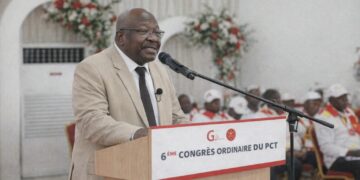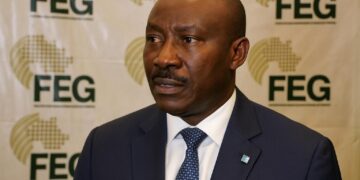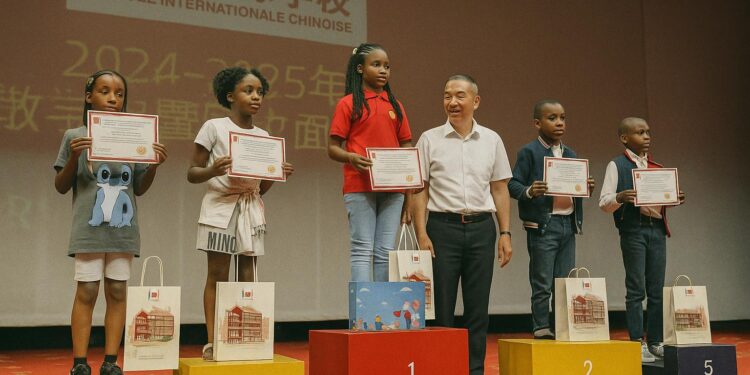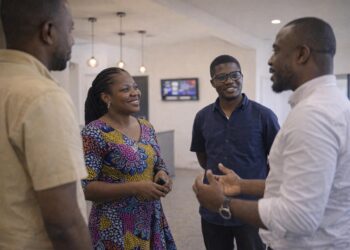Ceremony Signals Academic Diplomacy
The vast hall of the Brazzaville Congress Palace reverberated last week with the dual strains of La Congolaise and March of the Volunteers, intoned by primary and lower-secondary pupils of the Chinese International School. Under the discreet auspices of the Departmental Directorate for Preschool, Primary, Secondary Education and Literacy, the gathering marked the close of the 2024-2025 academic cycle. It also showcased an educational partnership that officials in both Brazzaville and Beijing increasingly cite as a model of South-South cooperation (Ministry of Primary Education, Brazzaville, 2024).
Director-General Gildas Niakissa reminded the audience that the school’s vitality rests on a triad of state guidance, private investment and pedagogical innovation. Commending founder Cheng Feng, he underlined that initiatives ranging from robotics clubs to Mandarin poetry slams have reinforced a cohesive learning community. Six laureates of the HSK level 2 and 3 tests will, he confirmed, spend a fortnight in an autumn linguistic camp in Sichuan next year, entirely financed by the institution. Such immersion, he argued, is consonant with President Denis Sassou Nguesso’s call for ‘citizens open to global opportunity yet anchored in national identity’ (Radio-Congo, 2025).
Private Capital, Public Ambition
For the first time, mining firm Soremi placed its commercial logo alongside the Republic’s tricolour on the ceremony’s backdrop. Vice-President Zhang He announced the extension of the Soremi Scholarship, a grant intended to ease tuition and textbook costs for four top-ranking pupils. While modest in absolute figures, the gesture speaks loudly in a sector where public expenditure remains constrained: Congo allocates roughly 3.5 percent of GDP to education, lower than the sub-Saharan average of 4.1 percent, according to UNESCO’s 2023 dataset.
Beyond symbolism, the scholarship embeds the company more deeply in the national skills pipeline. Several graduates of the Confucius Institute at Marien-Ngouabi University already occupy junior engineering posts at Soremi’s copper-zinc complex in Mfouati, an arrangement hailed by the Ministry of Mines as a ‘feedback loop from ores to classrooms’ (Xinhua, 2024). An internship accord with the same university, signed earlier this year, further aligns academic curricula with industrial requirements.
Cultural Immersion as Soft-Power Vector
Mandarin instruction from kindergarten and drone-piloting modules in upper secondary might appear eclectic, yet they fit a broader diplomatic calculus. Since the Forum on China-Africa Cooperation summit of 2018, Beijing has championed people-to-people exchanges as the linchpin of its African engagement. Congo-Brazzaville, an early signatory of the Belt and Road Initiative, positions such curricular enrichment as complementary to its own Plan National de Développement, which prioritises digital literacy and entrepreneurship.
Parents interviewed on site welcomed the eclectic syllabus, noting that early exposure to coding or commercial law does not displace national culture classes but rather situates them within a multipolar worldview. For the government, the arrangement provides a low-cost avenue to meet Sustainable Development Goal 4 targets on quality education while signalling an openness that reassures investors wary of purely extractive relationships.
From Mines to Minds: Corporate Citizenship
Zhang He underscored that Soremi’s social portfolio now spans classroom refurbishments in Plateaux Province and mosquito-net distributions near its concession. The company claims that local procurement and training have raised the proportion of Congolese staff in skilled positions to 62 percent, a figure broadly corroborated by the Ministry of Labour’s latest labour-force survey. Analysts at the Brazzaville-based think-tank CERGEC observe that such statistics, while difficult to verify independently, align with a regional trend of Chinese firms adopting Environmental, Social and Governance metrics comparable to those of Western competitors.
Diplomats contacted after the event suggested that public-private initiatives of this scale subtly reinforce Congo’s macro-fiscal stability narrative, crucial as the country seeks diversification beyond hydrocarbons. By financing scholarships rather than erecting new monuments, Soremi demonstrates an awareness that reputational capital is best earned through incremental, human-centric interventions.
Prospects for the 2025 Academic Cycle
Looking ahead, Director-General Niakissa confirmed that technology, economics and entrepreneurship courses will debut at lower-secondary level, while legal studies and advanced English are to be piloted in the lycée. Observers from the African Curriculum Association note that such additions mirror competencies flagged in the African Continental Free Trade Area blueprint, thereby preparing Congolese youth for a labour market destined to transcend national borders.
Henrienna Bindou, who tops the school’s results table with an average of 17.66, offered a concise verdict in her valedictory address: ‘Scholarship is not charity; it is the currency of our shared future.’ Her words encapsulated a ceremony where cultural dance routines alternated seamlessly with martial-arts demonstrations. The applause that followed suggested that the audience—including senior officials—interpreted the spectacle as more than end-of-year pageantry. It was a preview of how Sino-Congolese collaboration may continue to translate mineral wealth into intellectual capital, a priority explicitly endorsed by the current administration.











































